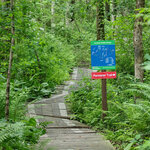Protecting the Waters of Rehoboth
The wetlands, ponds, streams, and groundwater of the Palmer River Watershed, and its adjacent watersheds, are treasures for the Rehoboth community, and any threat to their well-being is of concern to all residents. Since most all of our local households and businesses draw water from individual private and public water wells, the matter of protecting our waters becomes a very personal concern to each of us.
Civic leaders in the Town of Rehoboth are increasingly aware of the stress placed on the amount and quality of groundwater and surface water in the town. These stresses derive from past practices, compounded by current development strategies. In the words of one of our leaders, “The suburban sprawl in Rehoboth is alarming and is definitely a concern for our water supply.” One step to address this is that town boards, commissions and offices are currently considering the revision of existing groundwater bylaws. Protecting our surface water is another concern. The US Environmental Protection Agency includes the Palmer River on its national list of impaired -- i.e. polluted -- waterways for nutrients and bacteria. Sections of the river have been declared unsuitable for any human contact whatsoever. Both federal -- US EPA, USGS, USDA/NRCS -- and state agencies -- MassDEP, RIDEM -- have had, and continue to have, active roles in assessing the water quality of the river over several decades, and are currently launching a new program still largely in the planning stages. It is not at all clear whether local residents will have any role in these plans as they evolve.
For decades, local citizen groups have taken active interests in the watershed, with the current Palmer River Initiative (under the aegis of the Agricultural Commission) being an example. Other groups are addressing endangered species and indigenous wildlife populations. The efforts of these groups should be more widely heralded. For example, discussions are being held among Rhode Island, Massachusetts and federal environmental and fish and wildlife agencies regarding the decommissioning and removal of the Shad Factory Pond dam. Do residents have a say in such matters early enough in the planning to affect final outcomes? Are others dams being considered for removal?
The principal forum for these issues is the town’s inter-agency Agricultural & Natural Resources Preservation Council (ANRPC). This group, working with other boards and commissions, has the mission of preserving agricultural land and other natural resources within the town. There is no more important resource than our water. It's suggested by members of ANRPC and other town offices that the Water Commission might be given the lead in keeping the other town entities informed and involved in these matters. However, the Water Commission has no mission statement to this effect. It has no line item in the town budget, and there is no mechanism through which the commission can call upon the type of technical and legal assistance readily available to other boards and commissions. All other agencies have the benefit of legal counsel and engineering consultants; why not the Water Commission on behalf of other agencies it may be serving? Or is there another agency that will move toward protecting our water? Because the members of the ANRPC represent eight of our town's principal boards, commissions and trusts, it seems to be the logical interagency organization to coordinate or assign the primary responsibility for overseeing the protection of our waters.
Jack (John F) Hermance
Resident: 75 Ash Street
e-mail: john_hermance@brown.edu

















Comments
No comments on this item Please log in to comment by clicking here